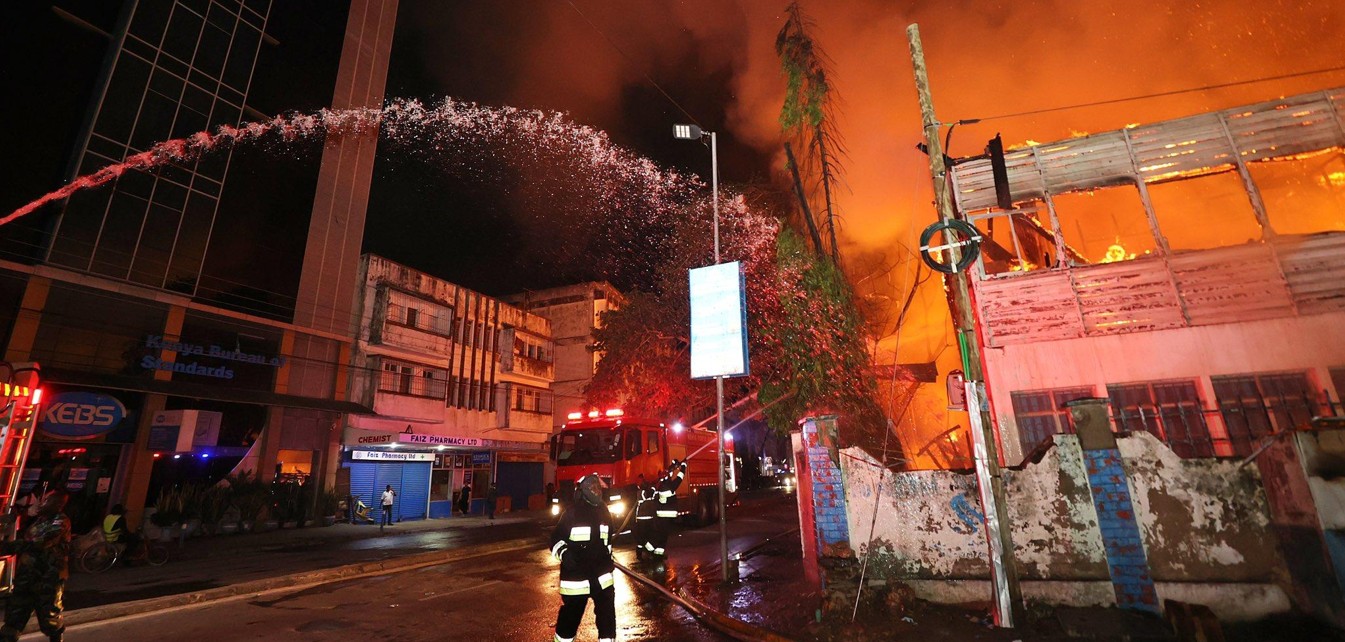Silent but deadly: Growing burden of respiratory diseases in Kenya

Respiratory illnesses and malaria remain the most common reasons for hospital visits in Kenya, according to new data released in the Economic Survey 2025.
Respiratory diseases often go unnoticed in their early stages because their symptoms are subtle and easy to dismiss. Many people attribute persistent coughing, fatigue, or shortness of breath to ageing, seasonal allergies, or a lack of exercise. As a result, instead of seeking medical attention, they adjust their daily routines to manage symptoms themselves.
This was the case for Ernest Muthama, who mistook a cough for influenza. For months, he relied on over-the-counter medication and home remedies—unaware that his health was slowly deteriorating into something more serious: chronic pneumonia.
More To Read
- Uproar as CS Duale clashes with reporter over SHA claims
- Health lobby urges media to promote positive reporting on reproductive health
- Hospitals ordered to update bed capacities, wait for 90 days before appealing downgrades
- Health ministry revokes internship placements for 348 nursing students over graduation issues
- Senators order crackdown on absenteeism in public hospitals
- Duale orders crackdown on thousands of ghost workers in UHC programme
“I always believed that as long as I kept warm and avoided harmful substances, there was no way I could get something like pneumonia or asthma,” he said. “So every time I had that recurring cough, I brushed it off, thinking it was just seasonal flu. I’d grab some cough syrup from the pharmacy, and, sure enough, it would go away—at least for a while. I didn’t think it was anything serious.”
This cycle went on for several months until one day he woke up unable to get out of bed. His entire body felt weak and drained. Assuming it was malaria, he took antimalarial medication, but nothing improved. That’s when he realised it was more serious, and finally went tothe hospital.
By the time he finally made it to the hospital, doctors informed him that the pneumonia had progressed to an advanced, chronic stage. His lungs were deteriorating, struggling to keep up with his breathing, and the pain was unlike anything he had ever experienced.
“I was completely down for weeks—unable to do anything productive,” he said. “I wish I had recognised the signs earlier. It cost me valuable time, made me miss out on important projects, and I ended up spending a lot of money just trying to recover.”
Respiratory issues like chronic pneumonia develop slowly over time and are often mistaken for less serious conditions, which makes them especially dangerous.
Unlike acute pneumonia, which comes on suddenly and severely, chronic pneumonia presents with symptoms that are more gradual and persistent. Individuals may experience a lingering cough that doesn’t go away, often producing mucus. Fatigue becomes constant, even after minimal physical effort, and there’s a general feeling of weakness that can interfere with daily activities.
Shortness of breath is also common, especially when climbing stairs or doing routine tasks. Some people notice chest discomfort or mild pain that worsens when coughing or breathing deeply. Fevers may come and go, often accompanied by night sweats and chills. Over time, there may also be unexplained weight loss and a noticeable decrease in physical endurance.
Because these symptoms can be subtle and easy to ignore, many people continue with their routines, attributing them to stress, age, or common infections. However, when left untreated, chronic respiratory diseases can severely damage lung function and lead to more serious complications.
Lack of awareness
Ernest’s experience highlights a broader issue in Kenya: the general public often lacks awareness of the early warning signs of chronic respiratory diseases. While acute infections like the flu or common cold tend to prompt medical visits, the slower onset of chronic illnesses means they’re frequently overlooked until they become severe.
Respiratory illnesses and malaria remain the most common reasons for hospital visits in Kenya, according to new data released in the Economic Survey 2025. The report, published by the Kenya National Bureau of Statistics (KNBS), highlights that chest-related illnesses accounted for the largest share of outpatient visits in 2024, contributing to 30.2 per cent of the total 66.2 million disease cases. This marks a significant rise from 22.4 per cent in 2023.
The Ministry of Health in 2024 acknowledged the surge in respiratory infections, particularly noting an increase in influenza cases and the continued monitoring of COVID-19 variants. These respiratory conditions include chronic bronchitis, asthma, and other infections affecting the lungs and airways.
Health experts attribute the rise in respiratory cases to deteriorating air quality and unpredictable weather patterns across the country.
Additionally, respiratory illnesses among children are a major concern. According to the KNBS, respiratory diseases are one of the leading causes of child mortality, contributing to 16 per cent of all deaths in children under five. Pneumonia, in particular, is responsible for a large portion of these cases, with over 80,000 children under five being treated for pneumonia annually in Kenyan hospitals.
Meanwhile, malaria continues to be a significant health burden, accounting for 5.7 per cent of total hospital visits. Despite ongoing efforts to combat the disease, it remains widespread, especially in endemic regions, contributing to high morbidity and mortality rates.
Spike in cases
Dr Esther Mukuhe, a healthcare professional based in Nairobi, has noted a troubling trend, with over 10 respiratory cases reported every week, affecting both children and adults. A significant number of these patients only seek medical attention once the condition has become severe, often making treatment more challenging.
“I encourage the public to seek medical care as soon as they notice any symptoms,” Dr Mukuhe explains.
“Many people wait until the issue worsens. For example, some children arrive at the clinic needing nebulisation treatment, but the delay in seeking care can lead to serious complications like lung collapse or fluid build-up in the lungs, which can result in even more severe health issues.”
She emphasises that early intervention is crucial in preventing respiratory conditions from escalating into life-threatening situations. She urges families to be aware of the signs and seek medical help before the symptoms worsen.
Common symptoms to watch for include a persistent cough, frequent flu-like symptoms, and general weakness. While these might seem like mild illnesses, they can be signs of underlying respiratory issues that need immediate attention.
“One of the most common respiratory conditions, aside from seasonal flu, is asthma, which can flare up unexpectedly. Another significant concern is pneumonia, which often presents at an advanced stage, making treatment more difficult. In some cases, pneumonia can be an indication of other serious health conditions, such as tuberculosis (TB). This is why proper check-ups and early diagnosis are so important.”
Dr Mukuhe also stresses that many people tend to overlook the connection between respiratory illnesses and more serious conditions, often assuming it’s just a seasonal flu. However, with proper medical intervention at the first sign of illness, many of these conditions can be managed effectively.
According to the World Health Organisation (WHO), untreated respiratory conditions, such as asthma, chronic obstructive pulmonary disease (COPD), and pneumonia, can lead to serious and often irreversible health complications. If not properly managed, these conditions tend to worsen over time, resulting in reduced lung function and more frequent, intense symptoms like shortness of breath and persistent coughing.
One of the major risks is the increased susceptibility to respiratory infections like influenza and pneumonia, which can further compromise lung health. In severe cases, untreated respiratory illness can lead to respiratory failure—a life-threatening condition in which the lungs can no longer provide sufficient oxygen to the body.
In addition to physical health impacts, chronic symptoms can significantly diminish a person’s quality of life, making it difficult to carry out daily activities and affecting mental well-being. Ultimately, untreated respiratory conditions contribute to high rates of hospitalisation and mortality worldwide.
Top Stories Today
- Kenya moves beyond Adani, seeks Sh258 billion for JKIA expansion
- CHAN ticket sales suspended at Kasarani following security breach
- Somalia, US hold talks on expanded cooperation on border security, immigration
- Two Somali soldiers killed while fighting militias in Gedo region
- Kamukunji youth empowered with tools and machines to start businesses
- Kenya must embrace PPPs to fund development, says Mbadi











































